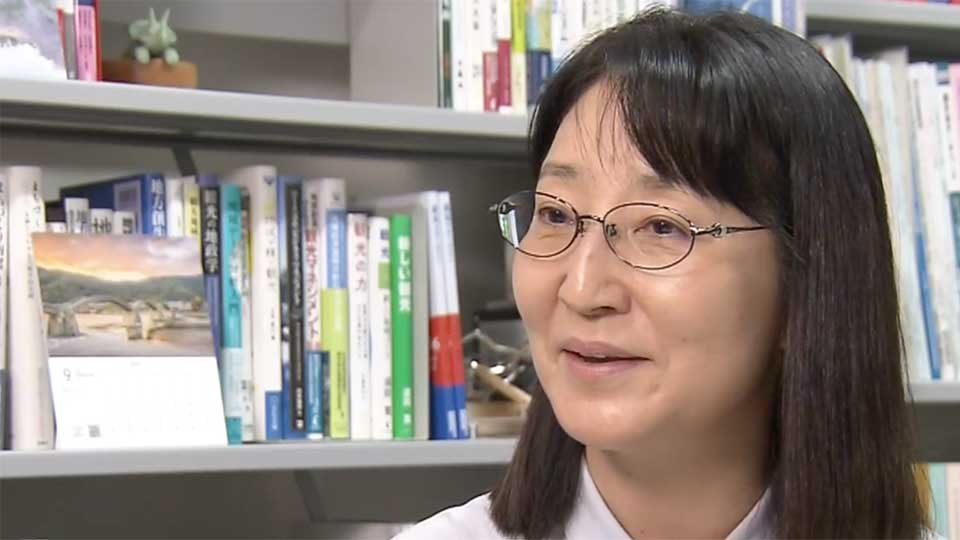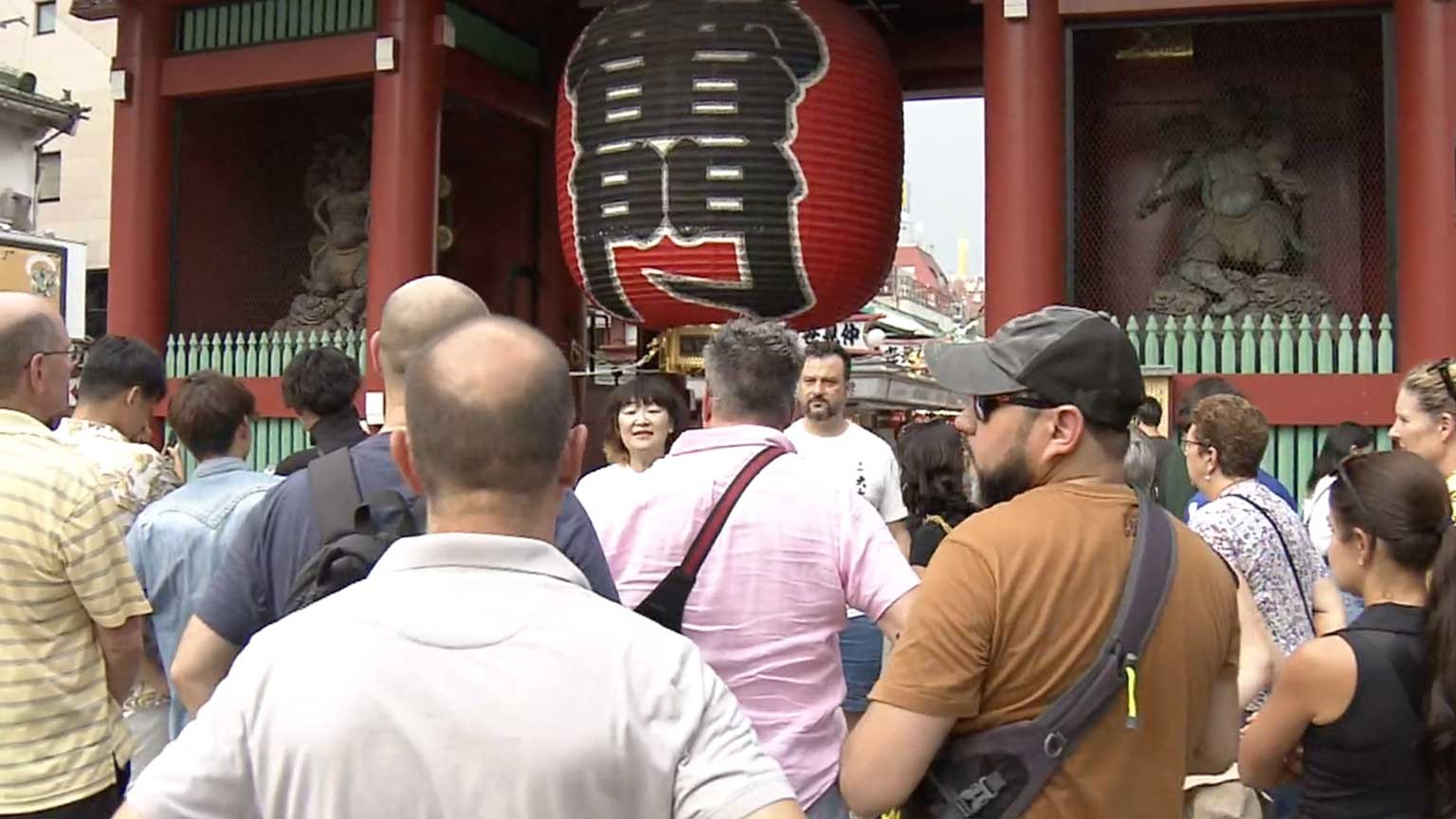Traditionally, paid tour guides in Japan have had to obtain a national qualification. This is easier said than done: they must demonstrate foreign language skills, as well as extensive knowledge of Japan's history, geography and culture.
Each year, only around 10 percent of applicants pass the exam.
In 2018, the law was revised to allow people without qualifications to serve as guides for a fee. But qualified guides – who currently number more than 27,000 – are still at a premium.
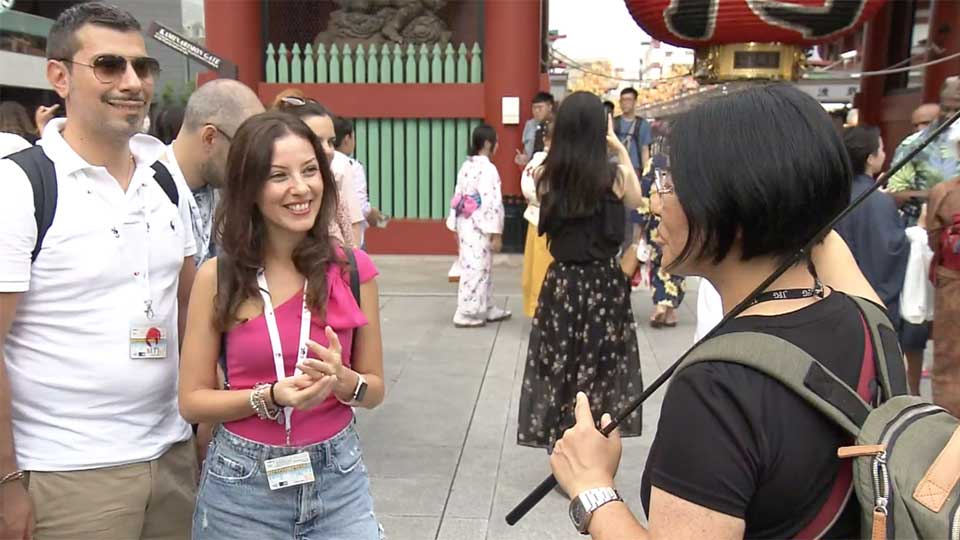
And as Japan tries to attract tourists, demand for them continues to rise.
"Having a guide gives you a better understanding of the culture and the country," one tourist tells NHK.
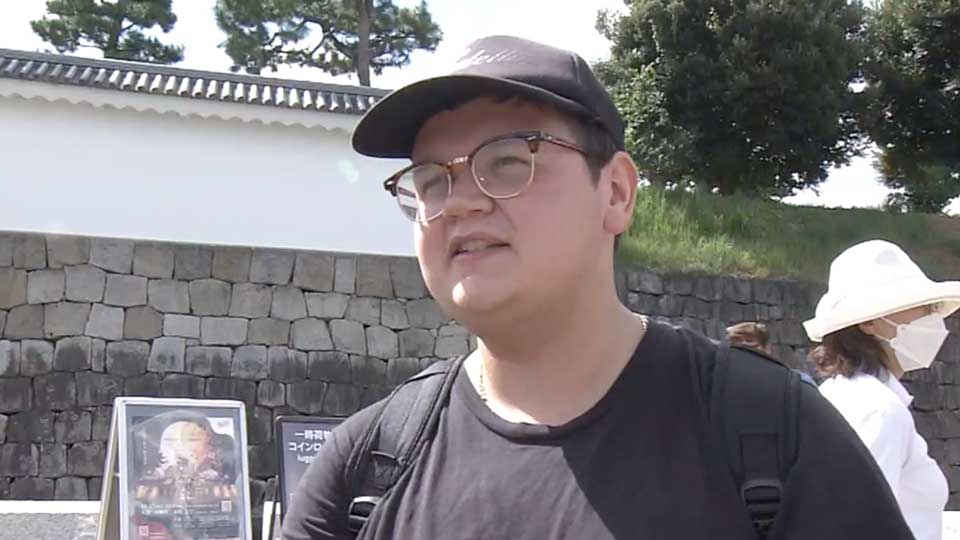
"It's definitely doable to make a trip out on your own, and go out and explore – I think it's just a lot of work," says another. "If you need the additional help, it is really nice."
Forced to turn away bookings
A travel agency catering to foreign visitors says they have had to refuse bookings or change tour itineraries because they weren't able to arrange guides.
"Some guides turned us down because they had moved to other industries during the coronavirus pandemic, or they were worried about the three-year gap in their resumes," says the company's Sato Yoshiyuki.
"It's especially difficult to arrange tours in smaller cities, where there's only a limited number of qualified guides. But with more foreign cruise ships docking at ports around the country, there's more and more demand."
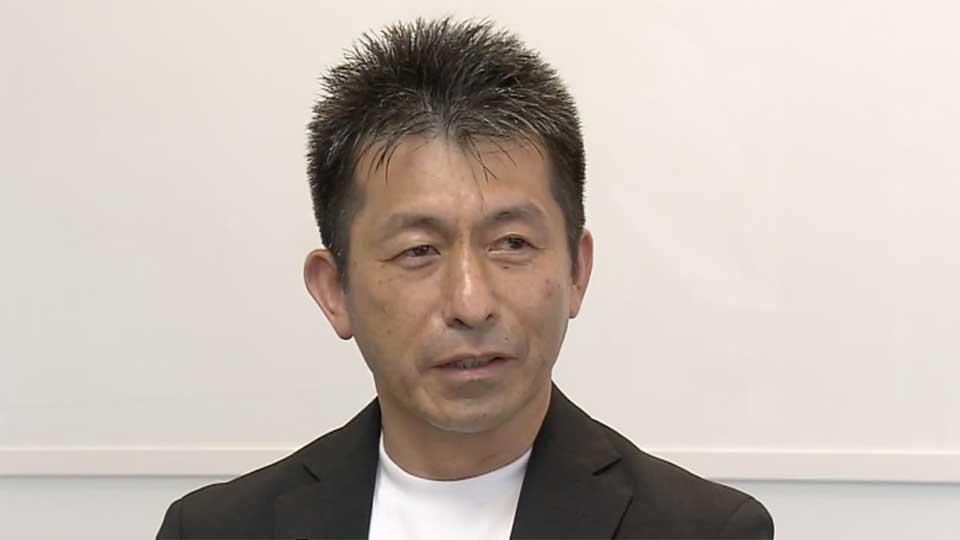
The company has been working with local guide associations since this spring to find guides who are experts on a specific region.
"With the government's tourism strategy, we expect the number of foreign visitors to increase further," says Sato. "So, we need to improve the balance of supply and demand for guides, otherwise we can't accept bookings."
Retraining guides for tourist hotspots
Some guide associations are working hard to fill the shortfall in popular destinations that are feeling the pinch. This includes Kansai, the region of western Japan that is home to Kyoto and Osaka.
"The shortage is really noticeable in Kansai," says Yonehara Ryozo, head of the Institute for Japanese Cultural Exchange and Experience.
"We sent people from Tokyo this spring to conduct tours there. The leading travel agencies are all saying they want us to train more guides for Kyoto, regardless of where we get them from."
Last month, the association held a workshop in Kansai for guides from other parts of Japan. Some said they were resuming work for the first time in three years.
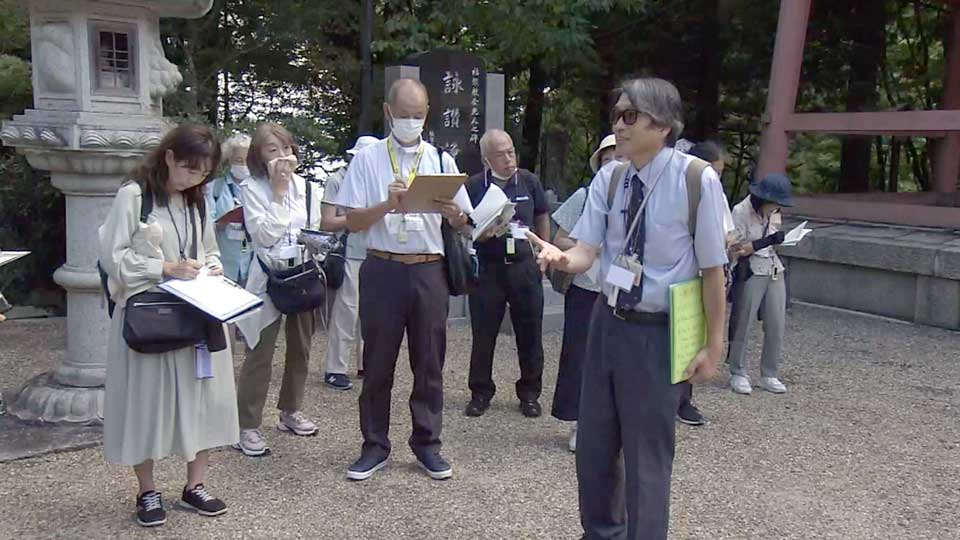
Participants learned about some of the region's popular sightseeing destinations. They also brushed up their English and got tips on how to conduct tours more effectively, such as by making themselves stand out in a group.
One participant said it was a welcome refresher. "I didn't work at all as a guide during pandemic," she said. "I've forgotten quite a lot."
Expert: Quality guides needed more than ever
Yagasaki Noriko, a professor at Tokyo Woman's Christian University and an expert on tourism policy, points out that quality matters as much as quantity.
Rather than just focus on increasing the number of guides, she says it is also important to fine-tune each person's skills.
"High-quality guides who can really look after customers are the most important, and they are definitely in short supply," she says.
"The value guides can bring is to turn people into Japan fans. With their language skills and deep understanding of the country's charms, they can convey Japan's appeal to the world."
